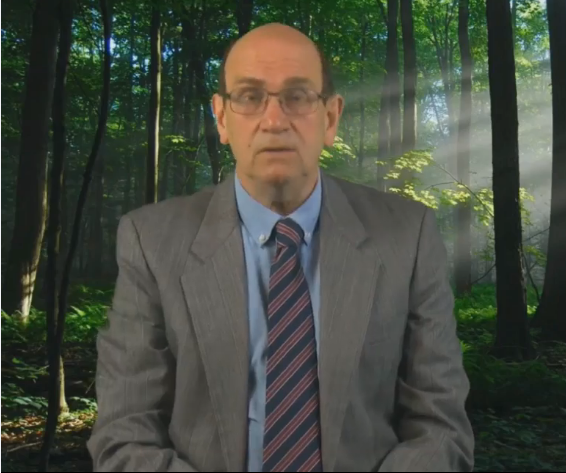Fraser Valley – On this Earth Day weekend, UFV Professor Emeritus and chillTV and abbyTV contributor Dr Tim Cooper along with Physicist Mark Isaak (whose background is the Subsea Industry and Fuel Cell Development), have penned a piece about their thoughts on Climate Change and that it is not too late to change our perspective.
A number of media outlets received this Op/Ed piece:
The climate time bomb is still ticking. The latest report from the Intergovernmental Panel on Climate Change (IPCC) is now out and they are saying nothing new, except that we have fiddled while the Earth was burning. Thus we have less time to act. In 2018 we had 12 years to half our emissions, but now only five years later, we have much less time. The IPCC says greenhouse gas emissions must peak immediately or before 2025 at the very latest. They then must drop rapidly, declining 43 per cent by 2030 and 60 per cent by 2035, relative to 2018 levels.
There are tipping points in the climate system, and once we warm to a tipping point the temperature will start increasing all by itself and totally beyond the control of humans. The IPCC has said that the danger of hitting tipping points is small if below 1.5 C but we are now likely going to pass this temperature. Putting it simply, because we wasted the last five years, we must now cut more steeply or risk everything.
What has gone horribly wrong? Why is BC pouring tax payers dollars into liquefied natural gas (LNG), the fossil fuel that will result in more planetary warming than any other over a seven-year period? Why are the feds paying $31 billion for a pipeline that can never be used?
Three million years ago carbon dioxide (CO2) levels were as high as today, but today the sun is hotter. Moreover, CO2 levels are going up 200 times faster than ever before, so we are in uncharted territory.
We are not yet committed to reaching the tipping points. No one can be sure if we will. We can only hope our government will take strong action in line with IPCC recommendations to reduce our emissions. This issue divides generations; the current leaders will be affected much less than their children.
What happens in B.C. in the long run is easy to predict. But what will happen here in the short run?
We’ve already seen beginning climate shifts as predicted. We’ve seen this in Lytton and in the Sumas floods where the dairy industry still has not fully recovered. California, where most of our vegetables are grown is having droughts, wild fires and shortages of water.
Food is a global commodity, and since the changed climate is making agriculture increasingly difficult. The price is starting to reflect this as we have all seen in our local grocery stores. In the short run climate change, war, fuel and supply chain problems have contributed to the price rise. But fuel came down in price after the peak, food costs kept going up. War will end. In the long run, costs are determined by supply which is determined by climate which is decided by politicians.
If governments collectively stop all carbon extraction from the Earth’s crust very soon, then our climate will keep increasing until levelling off at a new equilibrium. We will still see more droughts and storms. Sea level will continue to rise until it levels out between 15 metres and 20 metres. In other words, the roof of the Cottonwood Centre will likely not even be visible at low tide. Nothing can stop this now, but we can avoid making it worse. Compared to food prices, this is a minor problem as sea level rise will be slow; we can walk away.
But there are reasons to hope; and thing you can do:
• Consider taking public transportation. More travellers will result in more service including low and high speed trains (like in Europe or Asia);
• Consider an electric vehicle. EVs are now much cheaper to own and operate than internal combustion engine (ICE) based vehicles. Surveys show 97 per cent of electric car owners say their next vehicle will also be an EV. EVs are not limited to cars. There are trucks, semis, vans, garbage trucks and more.
• Consider switching out your gas furnace for a heat pump. Heating a house or other building with a heat pump is now cheaper than with a gas furnace. Next time your furnace needs replacing consider calling a heat pump installer. Not only are heat pumps cheaper to run than gas furnaces, but also there are grants from the feds, province and city to make the transition close to, or totally, free. Heat pumps are now also available for your hot water.
With summer 2023 looking to be the hottest on record it is a nice feature of heat pumps that they automatically give you air conditioning too. So before installing an air conditioner, consider that a heat pump would be cheaper.
Your MP, MLA and city councillors need to hear from you. Write to them, let them know your concerns.
Washington state is trying to bring in a law that all new construction must have heat pumps currently being fought by the gas industry.
Several municipalities are demanding new construction be more insulated than others. A well insulated house may cost slightly more than a leaky house, but saves a fortune in lower heating bills which would really help young people just starting out.
These actions will reduce our carbon emissions enormously. You may be wondering where all the electricity will come from for all the heat pumps and EVs. The last decade has seen solar move from a fringe source of electricity to mainstream and world-wide new electricity generation is dominated by solar because it is the cheapest source by far. Even Alberta is rapidly building solar plants. In future their electricity costs will be so low they will able to attract many good jobs.
B.C. has good solar resources in the deserts of the interior; currently not used. Both wind and solar work best with storage. BC has already built dams which are energy storage devices. For a full clean energy conversion, B.C. just needs to add about 15 gigawatts of wind and solar for a cost less than the TransMountain Pipeline expansion project. All we need are governments to speed and profit from the transformation.
Dr Tim Cooper and Mark Isaak.








